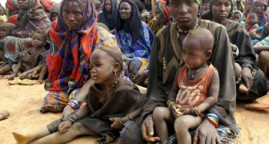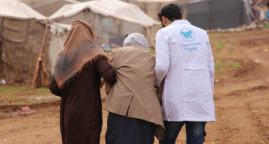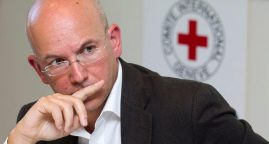One million South Sudanese refugees in Uganda
Article published on the Sovereign Order of Malta website on 08/09/2017
The civil war in South Sudan has taken its toll on neighboring country Uganda. The number of South Sudanese refugees in Uganda has now reached the million mark.
Many of these refugees make the journey across the border, not just because of the Uganda’s proximity, but also as a result of the country’s welcoming approach to hosting refugees. “Uganda has provided a true and outstanding neighborly aid”, said Alexander Tacke-Köster, Program Coordination for Malteser International in Uganda, the Order of Malta worldwide relief agency.
Based on a concept of self-help assistance, refugees receive land and materials on arrival to put up their own shelters, as well as seeds and hoes to grow their own food. This concept aims at ensuring a self-reliant life for the refugees in the long term. “Uganda is however beginning to reach the limits of its capacity. One million people need space and support,” said Tacke-Köster. “We offer support by providing improved supply of clean drinking water for 30,000 refugees. Although the number of arrivals are declining, an end to the influx of refugees is not in sight.”
The German Federal Foreign Office is supporting Malteser International’s projects in Uganda and has released an additional one million euros to upscale ongoing aid projects for South Sudanese refugees in the African eastern country.
Related Articles
Sahel’s plight worsens amid fighting, says UN aid chief
03/18/2015. Conflict in Africa’s Sahel region is the biggest threat to saving lives in one of the poorest places on earth, according to the UN aid chief in charge there.
Eight years of war in Syria: ‘The scale of human suffering cannot be expressed in numbers’
03/14/2019. Half a million people have lost their lives and millions have been displaced, but the scale of human suffering cannot be expressed in numbers.
McKay Interview: Yves Daccord, Director-General ICRC
06/13/2019. Michael and Yves discuss the organisation’s work, how its changed over the last few years, the impact of new technology and are the Geneva Conventions, which underpin the ICRC’s work, still valid in the 21st Century?






